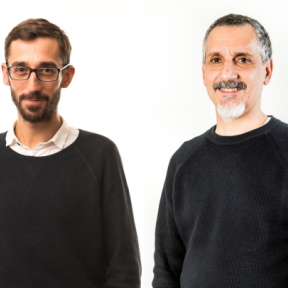Latest news about drug repurposing in oncology #3

Latest news about drug repurposing in oncology #3
Drug repurposing is a strategy for identifying new uses for approved drugs, outside the scope of the original indication. It is one of the focus areas of the Anticancer Fund.
Below, we have listed recent findings about the repurposing of generic drugs in oncology. Our intention is to help bring these findings to the attention of the broader cancer research community.
Being listed is no endorsement of the results and conclusions of the article. All articles need to be critically assessed and viewed in their broader research context.
Please get in touch if you’re interested in discussing research based on the findings presented below (info@anticancerfund.org).
Top story (paediatric cancers)
Metro-SMHOP 01: Metronomics combination with cyclophosphamide-etoposide and valproic acid for refractory and relapsing pediatric malignancies
Published in Pediatr Blood Cancer
98 refractory and relapsing paediatric cancers received a combination of metronomic chemotherapy and valproic acid in Morocco. A first trial of this type conducted by Moroccan Society of Paediatric Haematology & Oncology showing good tolerability and providing an efficacy signal in some cancer types (eg Ewing’s sarcoma), for an all-oral affordable regimen.
Trials (glioblastoma, gastro-intestinal cancers, CML)
Mebendazole and temozolomide in patients with newly diagnosed high-grade gliomas: Results of a phase 1 clinical trial
Published in Neuro-Oncology Advances
Long awaited phase 1 trial in high-grade glioma with temozolomide. MTD not reached despite a very high final dose (200mg/kg/d). Authors argue that 75-100mg/kg/d may be a better dose for future trials to increase compliance and prevent possible delayed toxicity.
Combination Therapy of High-Dose Rabeprazole Plus Metronomic Capecitabine in Advanced Gastro-Intestinal Cancer: A Randomized Phase II Trial
Published in Cancers
No PFS difference but a higher incidence of adverse events when high-dose rabeprazole is added to capecitabine in patients with advanced GI cancers (mainly colorectal) in this Italian trial.
A randomised phase II trial of hydroxychloroquine and imatinib versus imatinib alone for patients with chronic myeloid leukaemia in major cytogenetic response with residual disease.
Published in Leukemia
The proportion of patients who achieved a ≥0.5 log reduction in their 12-month BCR-ABL1:ABL1 qPCR ratio from trial entry was not different when 800mg/d of hydroxychloroquine was added to imatinib in CML patients in major cytogenetic response with residual disease detected by qPCR. Hydroxychloroquine intake was associated with diarrhoea in 21/32 patients and 2 patients had a cardiac event that recovered after discontinuation.
Efficacy and safety of pioglitazone in a phase 1/2 imatinib discontinuation trial (EDI-PIO) in chronic myeloid leukemia with deep molecular response
Published in Am J Hematol
In this Brazilian single-arm trial, adding pioglitazone (30mg/d) to imatinib for 3 months before CML treatment discontinuation led to a treatment-free rate of 64% at 12 months, which is consistent with other imatinib discontinuation trials. Pioglitazone was well tolerated with few adverse events.
Case reports (desmoid tumors, melanotic neuroectodermal tumor of infancy)
Combination therapy with sorafenib and celecoxib for pediatric patients with desmoid tumor
Published in Pediatr Hematol Oncol
Two American children with refractory, progressive desmoid tumours experiencing a response to a combination of sorafenib and celecoxib.
Melanotic neuroectodermal tumor of infancy successfully treated with metformin: A case report
Published in Medicine
A patient from China with melanotic neuroectodermal tumour of infancy with recurrence after surgery experienced disease control with metformin (7mg/kg, 3 times a day).
Observational studies (multiple, NSCLC, mesothelioma)
Association of postoperative influenza vaccine on overall mortality in patients undergoing curative surgery for solid tumors
Published in Int J Cancer
A registry-based national observational study in Denmark showing an association between receiving a flu vaccine within 30 days after surgery and overall mortality (HR 0.82, 95% CI 0.72-0.94) and cancer-specific mortality (HR 0.70, 95% CI 0.53-0.91). No such associations were found for patients receiving the vaccine after 30 days to six months after surgery.
High-intensity statins are associated with improved clinical activity of PD-1 inhibitors in malignant pleural mesothelioma and advanced non-small cell lung cancer patients
Published in Eur J Cancer
In 82 malignant pleural mesothelioma patients who received anti-PD-1 in Italy & the Netherlands, use of statins was associated with increased PFS (HR 0.36, 95% CI 0.16-0.81) and increased OS (HR 0.27, 0.10-0.74). In 179 advanced non-small cell lung cancer who received anti-PD-1, a significant association was also observed for PFS (HR 0.52, 95% CI 0.29-0.93) but not for OS (0.68, 95% CI 0.38-1.22). These associations were driven by high-dose statins users.
Preclinical papers (pancreatic cancer, TIGIT/PVR blockade, BRAF-mutated melanoma)
Nicotinamide combined with gemcitabine is an immunomodulatory therapy that restrains pancreatic cancer in mice
Published in J Immunother Cancer
In this paper co-authored by 2 of our colleagues, nicotinamide (a form of vitamin B3) combined with gemcitabine reduced tumour weight, limited metastatic spread and increased survival in various pancreatic cancer models, compared to all control groups. This effect was mediated by T cells through epitope spreading and by remodelling of the tumour stroma.
Repositioning liothyronine for cancer immunotherapy by blocking the interaction of immune checkpoint TIGIT/PVR
Published in Cell Communic Signal
Liothyronine, a synthetic form of the T3 thyroid hormone, was found through various assays to block the interaction of the checkpoint TIGIT/PVR. In vivo, liothyronine reduced tumour growth in a MC38 tumour model through an improved tumour infiltration and function of CD8+ T-cells. Whether the dose used is compatible with human use is unclear.
Combating acquired resistance to MAPK inhibitors in melanoma by targeting Abl1/2-mediated reactivation of MEK/ERK/MYC signaling
Published in Nat Commun
In melanoma models, the authors show that ABL1/2 drives BRAF and BRAF/MEK inhibitor resistance by inducing reactivation of MEK/ERK/MYC. In vivo, nilotinib, an ABL1/2 inhibitor approved for CML could reverse resistance and induce prolonged regression of resistant tumours, but also prevent BRAF/MEK inhibition resistance from developing in the first place.
Other drug repurposing news (soft repurposing, non-oncology late-phase trials, regulations …)
None
Popular media
None
Subscription
Would you like to stay informed about the latest news on drug repurposing in oncology? You can easily subscribe to this newsletter by clicking here. You will automatically receive updates on this topic in your mailbox.

